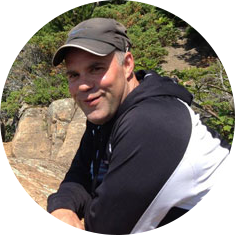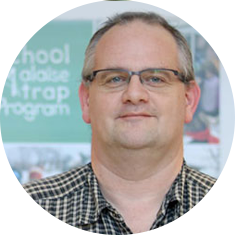Fixing broken ecosystems is only possible if we understand the way that they function. The most reliable way to achieve such understanding is by manipulating model systems to precisely identify where the breakdowns occur and then extend this knowledge to guide our approach to more complex field settings.
What challenge does “Synergistic Effects of Climate Change, Nutrient Loading, and Pesticide Accumulation” address?
Ongoing climate change coupled with increases in nutrient loading and pesticide accumulation from agricultural activities potentially threatens the ecological processes responsible for maintaining healthy ecosystem services like productive fisheries, clean sources of drinking water, and recreational opportunities in the Great Lakes. This research is designed to identify the ecological mechanisms by which these environmental stressors operate in model aquatic foodwebs, both in isolation and synergistic interaction. This is a crucial step in determining the most effective solution.
How will this research address the challenge?
This research is designed to identify the ecological mechanisms by which key environmental stressors operate in simple aquatic food webs, both in isolation and synergistic interaction. Through a combination of controlled bench-top demographic trials, time series experiments in controlled mesocosms, and computer models, we will identify key ecological processes responsible for ecosystem collapse.
What impact will the project have on agriculture?
Understanding the underlying processes behind ecosystem collapse is a crucial first step in determining the most effective land use policies as well as efficient means for remediation of degraded ecosystems.
Other information
Collaborators and students: Dr. Gustavo Betini (Postdoctoral Research Associate, Dr. Tal Avgar (Postdoctoral Research Associate), Xueqi (Sharon) Wang (graduate student), Danielle Bourque (graduate student), and Nicola Shaw (graduate student).
Visit our ecosystem services research.
For more information on this research project, please visit:
https://cottenielab.org/
https://www.turetskylab.com/
Heyland Lab





